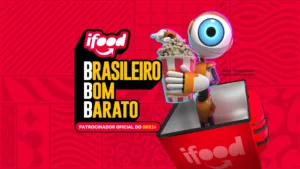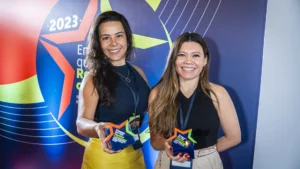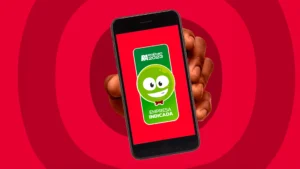Discover the trajectory of the iFood CEO and his vision on delivery and business of the future
Today it is very common to see a person taking out their cell phone to place an order on iFood (or to use a variety of applications). But, when he saw an iPhone for the first time, Fabricio Bloisi, CEO of iFood, doubted that the new product would become popular in this way.
When the smartphone Apple was launched in 2007, he believed that such innovation would only fit into a few pockets. “I thought it was something incredible, but no one would buy it, only the very rich. Today we have billions of smartphones, but on that occasion I doubted it”, says the CEO of iFood when sharing this passage from his story with the audience at the Brazil Conference at Harvard & MIT, an event held online between April 11th and 17th (See Fabricio's full participation here).
O smartphone arrived to change once and for all the way we interact with electronic devices, and for this reason it is a milestone in technology — a subject of which Fabricio has been a great and passionate enthusiast since he was a child.
Even as a child, in Salvador (BA), Fabricio became interested in computing. He says that two remarkable inventions, which would define his life path, were two very old computer models: the MSX and the PC XT.
It was from this fascination that his interest in studying programming arose as a child. From there, he began creating and trying to sell his first software for store owners in the capital of Bahia. He received a lot of “no’s”, which helped him learn, test and see what worked and what didn’t — and try again.
Besides technology, what inspires Fabricio most are big dreams, those that seem impossible (at least to others). They were the ones who led the young man to leave Salvador to study in Campinas (SP), where he studied computer science at Unicamp (State University of Campinas).
“I read a book that said you had to write down your 20-year goals and show them to your friends. If they say it's impossible, you have a big dream”, recalled the CEO of iFood during the Brazil Conference at Harvard & MIT. “I'm always thinking about new and big dreams for my company too, and this has become part of our corporate culture.”
That was just the beginning of the story. Discover, below, Fabricio's trajectory and what he considers fundamental, in this journey, for the success and growth of iFood.
Computing, childhood friend
Since he was little, Fabricio dreamed of working with technology. As a child, he was fascinated by “Star Trek,” “Star Wars” and science fiction. Then the first personal computers appeared in his life, the MSX and the PC XT. “These two computers made me — and still make me — dream.”
He says that he started studying computing at the age of 8, and at 13 he started trying to sell the software he created to store owners in Salvador, the city where he was born and lived until he was 19. “But no one bought it, just my mother and some family members”, he remembers.
The disciplined creative
The determination to pursue his big dream began when Fabricio was taking the university entrance exam. “I read a book that said you had to write down your 20-year goals and show them to your friends. If they say it's impossible, that's a big dream. When I was 16, 17 years old I started writing down my dreams”, says the executive, who continues to this day with the routine of writing down his short and long-term dreams. “Today, my dream would be to go to the Moon.”
Fabricio's trajectory is super connected with technology, and this was fundamental when deciding which course to take in college: computer science, at Unicamp. “I entered college with big hair, I played the guitar, I thought about creative and different things, so I was much less disciplined and executive, like they think I am today”, he recalls.
It was there that he began to work on his ambidexterity. “So I forced myself to have the creative side, but have the side that says 'look, I have this plan, which will be executed this way, these are the dates, I will have the discipline of bringing people together, counting, communicating, fulfill that agenda. It was essential to have this side to make the story of iFood and Movile move forward.”
iFood's big dream
It was in a small room at Unicamp, with another partner, that Movile was born, which would later be the investor that would boost the iFood business. Fabricio's big dream gained scale and left his personal responsibility. “I think about new and big dreams and this has become part of our corporate culture. At iFood, we ask ourselves: what are we going to do in 10 or 20 years? We write it down and then we’ll get everyone to work together to get there.”
Among many big dreams, the biggest is to fuel the future of the world. “We want to be incredible in delivering good, healthy food, for special moments and for all budgets. At the same time, we want to feed the future”, says the CEO of iFood.
“This means contributing to Brazil being a better place. Contribute to education, environment, inclusion, reduce historical inequalities”, explains Fabricio. This big dream includes the goals of being a zero carbon company, a reference in clean and environmentally friendly energy. “I always had a big dream like this. But now we have the possibility to make it true.”
Fabricio also says that every month he takes risks because he often decides to make some change in the business he manages.. “For every five things that go wrong, one will go very well”, he believes.
The delivery revolution
The focus of investment in technology and innovation is to deliver ever greater efficiency. “We don’t have to use artificial intelligence to make delivery costs lower. If we deliver in 27 minutes, we have to use technology to allow people to receive things in 10, 15, 20 minutes at a lower cost”, he says.
For Fabricio, the technology applied to delivery is just the beginning of a journey that, in the long term, could change the way we relate to food (more or less as happened with clothing production).
“100 years ago, we sewed our own clothes at home. I think that in the future we will not prepare our food at home”, projects the executive. “Let’s talk to our smartwatch and he will deliver the best food, even without us placing the order, cheaper, with better quality and healthier.”
In the future, he hopes to see leaders who are entrepreneurial, passionate, innovative and also have big dreams, even those that go beyond monetary goals. “I hope they also have a proposal on how to make people’s lives better, that they think about the environment and inclusion.”


